Russia sanctions list: What the West imposed over the Ukraine invasion

The US, UK and EU have adopted sanctions aimed at freezing the assets of President Vladimir Putin and his foreign minister, Sergei Lavrov, in response to the war in Ukraine.
They also plan to place sanctions on the Russian central bank and remove some of the country’s lenders from the SWIFT global payments system, in addition to other economic sanctions. Other allies, including Japan, Canada, Australia and South Korea, have also adopted sanctions.

Here is a list of the main sanctions imposed so far by the US, UK, the EU, Switzerland, Japan and Canada.
Politicians, officials and oligarchs
- President Vladimir Putin’s foreign-held assets in the EU, US, UK, Switzerland, Japan and Canada are frozen, but he is still allowed to travel to those jurisdictions. The reason for the asset freeze, according to the EU legal text published on February 25, is his recognition of the independence of Donetsk and Luhansk, ordering the Russian armed forces into those areas and for the full-scale invasion of Ukraine.
- Sergei Lavrov, Russia’s foreign minister, is subject to asset freezes in the EU, UK, US, Switzerland, Japan and Canada. The EU said it was for being “responsible for and actively supporting actions undermining the territorial integrity, sovereignty and independence of Ukraine, as well as stability and security in Ukraine”. He is still allowed to travel.
- Sergei Shoigu, Russian defence minister, and Aleksandr Bortnikov, head of the Russian security service (FSB), are both on the EU, US, Swiss and Canadian travel ban and asset freeze list. Japan has also imposed sanctions on Shoigu.
- Valery Gerasimov, chief of the Russian armed forces, is now on the US, Canada and Japan travel ban and asset freeze lists. He was already blacklisted by the EU and the UK in 2014.
- Russian parliament: The EU, Switzerland and Canada have imposed sanctions on 351 members of the Russian Duma who voted to recognise the independence of Donetsk and Luhansk, placing them on a travel ban and asset freeze list. The UK took the same measure and included members of the Federation Council who voted in favour. The US had previously imposed sanctions on the head of the Duma.
- Russian security council: Members of the council are on the EU, US, Swiss, Japanese and Canadian travel ban and asset freeze lists.
- Belarus officials: The EU, US and Switzerland placed military, government and border officials from Belarus on their asset freeze and travel ban list for helping to plan and actively supporting the Russian military offensive against Ukraine. Japan has said it will take similar measures.
- Kirill Shamalov, Russia’s youngest billionaire who was previously married to Putin’s daughter Katarina, is banned from travelling to the UK and his assets there are being frozen.
- Petr Fradkov, head of Promsvyazbank and son of the former head of Russian foreign intelligence, is on the UK, EU and Canada asset freeze and travel ban lists.
- Denis Bortnikov, deputy president of Russia’s second-biggest lender VTB and son of the FSB chief, is blacklisted in the UK, the EU, the US, Switzerland and Canada.
- Yury Slyusar, director of United Aircraft Corp, and Elena Georgieva, chair of the board of Novikombank, a state-owned defence conglomerate, are banned from the UK. Slyusar also faces sanctions in Canada.
- Gennady Timchenko, Russia’s sixth-richest oligarch who controls private investment firm Volga Group which has interests in energy, transportation and construction, is on the UK, EU and Canadian travel ban and asset freeze list.
- Boris Rotenberg, the oligarch who co-owns SMP Group, the largest construction company for gas pipelines in Russia, is under UK, US and Canada sanctions, while his nephew Igor Rotenberg, a majority shareholder in Gazprom Drilling, is sanctioned in the UK and Canada. The US has also sanctioned billionaire businessman Arkady Rotenberg and three of his children.
- Alexei Mordashov, a businessman and billionaire, is chair of Severgroup, a shareholder of Bank Rossiya – considered the personal bank of senior Russian officials. He is under EU sanctions.
- The US has sanctioned Sergei Chemezov, the CEO of defence company Rostec, and his wife, son and stepdaughter.
- Violetta and Lyubov Prigozhina, the mother and the wife of Yevgeny Prigozhin, who the EU says is responsible for sending Wagner Group mercenaries to Ukraine, are banned from the EU and Switzerland and will have their assets frozen. Canada and the US have also imposed sanctions on Yevgeny Prigozhin, his wife and their two children, Polina and Pavel.
- Sergei Ivanov, a Russian senior official and politician who previously served in the KGB, and his son, Sergei, chief executive of Russian state-owned diamond mining company Alrosa and a board member of Gazprombank are both in the US and Canada sanctions list.
- The US also imposed sanctions on Nikolai Patrushev, secretary of Russia’s security council, his son, Andrey, former chief executive of Gazprom Neft (both also under Canadian sanctions), oligarch Igor Sechin (also under EU sanctions) and his son Ivan (also under Canadian sanctions), deputy department head at Rosneft.
- Senior executives at state-owned banks: Alexander Vedyakhin (Sberbank), Andrey Vedyakhin and Yuriy Soloviev (VTB), as well as Soloviev’s wife Galina Olegovna Ulyutina, have also been added to the US sanctions list. Canada has also imposed sanctions on Alexander Vedyakhin and Galina Olegovna Ulyutina.
- The EU, the UK and the US have announced asset freezes and travel restrictions on Putin’s inner circle of oligarchs. The EU and the US targeted NikolaiPetrovich Tokarev (also under Canadian sanctions), who is the head of Transneft, while the EU, the UK and the US all sanctioned Alisher Usmanov, who the EU said has been known as Putin’s “favourite oligarch”.
- The UK and the US have sanctioned oligarch Igor Shuvalov, who is also on the EU’s list.
- Mikhail Fridman, co-founder and one of the main shareholders in Alfa Group, and Petr Olegovich Aven, another important Alfa shareholder, are also on the EU list, as are Sergei Pavlovich Roldugin, known in Moscow as “Putin’s wallet”, and Alexander Ponomarenko, chair of Sheremetyevo International Airport.
- The EU has imposed sanctions on Putin’s press secretary, Dmitry Peskov, politician Andrei Turchak, and the deputy prime minister for tourism, sport, culture and communications, Dmitry Nikolaevich Chernyshenko. He is also on the board of directors of Russian Railways, as are two other additions to the sanctions list: Irek Envarovich Faizullin and Vitaly Gennadyevich Savelyev.
- Seven people in Russia’s media industry were on the EU sanctions list, including TV show host Tigran Keosayan, talk show host Olga Skabeyeva and the editor in chief of news agency Regnum, Modest Alexeyevich Kolerov.
- Military officials have been included in EU sanctions. Notable figures include Black Sea Fleet vice-admiral Sergei Mikhailovich Pinchuk, deputy commanders of the Southern Military District Alexey Yurevich Avdeev and Rustam Usmanovich Muradov, and lieutenant-general Andrey Ivanovich Sychevoy.
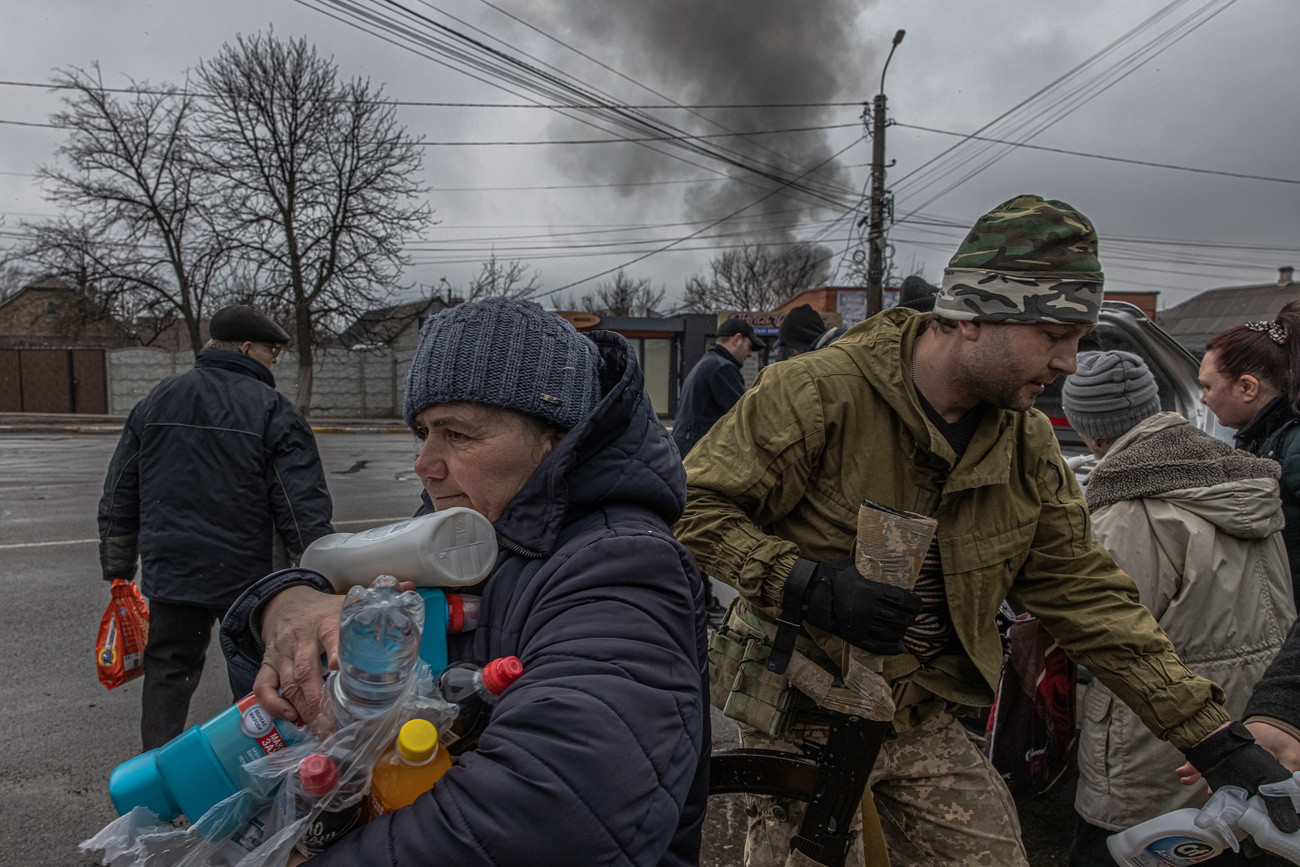
More
Switzerland triggers wide range of sanctions against Russia
Banks and financial services
- Russia’s central bank: The EU already prohibits the “direct or indirect trade in investment services for . . . securities and money-market instruments issued after April 12, 2022”. In addition, the US, UK, Canada and the EU seek to “impose restrictive measures that will prevent the Russian Central Bank from deploying its international reserves in ways that undermine the impact of our sanctions”. Japan has also imposed restrictions on transactions with the central bank.
- SWIFT: A “select” number of Russian banks will be removed from the SWIFT international payments system to “ensure that these banks are disconnected from the international financial system and harm their ability to operate globally”, the US, UK, Canada and EU said in their joint statement on February 26. The EU later said these include seven banks: Bank Otkritie, Novikombank, Promsvyazbank, Rossiya Bank, Sovcombank, Vnesheconombank (VEB) and VTB Bank.
- Sberbank: The US has cut off Russia’s biggest bank and 25 subsidiaries from the US financial system. The sanctions restrict Sberbank’s access to US dollar transactions. The financial institution accounts for close to a third of Russia’s banking system and is deeply connected to the global financial system. Canada has also hit Sberbank with sanctions by imposing an asset freeze and dealings ban.
- VTB Bank: The US, UK and Canada have frozen assets at Russia’s second-largest bank, which is heavily exposed to western financial systems. This means the bank and its subsidiaries will not be able to do any business in the UK, US and Canada or with their nationals.
- Alfa-Bank and Bank Otkritie face an EU ban on issuing bonds, shares or loans in the EU for refinancing, while the US has imposed debt and equity restrictions on Alfa and full blocking sanctions on Otkritie. Canada has imposed an asset freeze and dealings ban on both.
- The EU, UK, Switzerland and Japan have imposed asset freezes on RossiyaBank and Promsvyazbank (also under Canadian sanctions). The US has also imposed full blocking sanctions on Promsvyazbank.
- The US has issued full blocking sanctions against Sovcombank and Novikombank, while placing new debt and equity restrictions on Russian Agricultural Bank, Credit Bank of Moscow and Gazprombank. Canada has imposed an asset freeze and dealings ban on all of these bar Credit Bank of Moscow.
- The UK and Canada have imposed sanctions on GenBank and Black Sea Bank for Development and Reconstruction, while Is Bank is also on the UK’s list.
- VEB.RF, a major financial development institution and an important source of revenue for the Russian government, has been placed under sanctions by the EU, Switzerland, Japan, Canada, US and UK.
- Canada has also imposed sanctions on the Russian Direct Investment Fund, Eximbank of Russia, Cetelem Bank, Transkapitalbank and Ural Bank for Reconstruction and Development.
- Belarus banks: The US imposed sanctions on two state-owned banks, Belinvestbank and Bank Dabrabyt, in response to Minsk’s participation in the Russian invasion. Two Minsk-based companies – real estate group Belinvest-Engineering and financial leasing company CJSC Belbizneslizing – are being listed for having acted on behalf of Belinvestbank.
Companies
UK
- Russian airline Aeroflot will be banned from UK airspace.
- Rostec — Russia’s largest defence company.
- Uralvagonzavod — the world’s largest tank manufacturer.
- Tactical Missile Corporation — a major supplier of air and seaborne missiles.
- United Aircraft Corporation — a Russian holding company that supplies. military aircraft and includes all major Russian aircraft manufacturers.
- United Shipbuilding Corporation — the largest shipbuilding company in Russia, which has constructed key Russian warships.
EU
- EU-based companies are banned from exporting technology to Russian weapons maker JSC Kalashnikov, among others, as well as pharmaceutical companies, military communications units and shipyards.
- EU companies are banned from doing business with the following state-owned companies: arms maker Almaz-Antey, truckmaker Kamaz, Novorossiysk Commercial Sea Port, Rostec, Russian Railways, nuclear submarine maker Sevmash, hydrocarbons shipping company Sovcomflot,United Shipbuilding Corporation and gas industry insurance company Sogaz.
- Internet Research Agency — a Kremlin-backed company that is behind Ukraine disinformation campaigns and financed by Yevgeny Prigozhin, is also banned by the EU and Switzerland.
US
In addition to targeting Russia’s largest financial institutions, the US has heavily restricted companies critical to the Russian economy from raising money through the US market. These include:
- The world’s largest natural gas company, Gazprom, one of Russia’s largest oil producers and refiners, Gazprom Neft, oil pipeline group Transneft and one of Russia’s largest power companies, RusHydro.
- Sovcomflot and Russian Railways.
- The country’s largest communications operator, Rostelecom, and the world’s largest diamond mining company, Alrosa.
- The US has also imposed full blocking sanctions on seven “disinformation targets”, including SDN Strategic Culture Foundation and associated outlets.
Canada
- Canada has imposed sanctions on the following companies: Rostec, Wagner (paramilitary organisation), Rostelecom, RusHydro, Alrosa, Sovcomflot, Russian Railways, Gazprom, Gazpromneft, Transneft, Tactical Missiles Corporation and United Aircraft Corporation.
Other measures
UK
- Restricting wealthy Russians’ access to UK banks, including a £50,000 (CHF60,000) limit on bank accounts.
- Asset freezes against all Russian financial institutions.
- Measures to prevent Russian companies from issuing transferable securities and money market instruments in the UK (in addition to prohibiting the Russian state from raising sovereign debt in the UK).
- Powers to prevent designated banks from accessing sterling and clearing payments through the UK.
- Prohibiting the export of high-end and critical technical equipment and components in sectors including electronics, telecommunications and aerospace.
- The territorial sanctions that the UK has imposed on Crimea will be extended to Donetsk and Luhansk, meaning no UK individual or business can deal with the territories until Ukraine controls them again.
EU
- A ban on Russian deposits above €100,000 (CHF100,200) in EU banks, on Russian accounts held by EU central securities depositories and on selling euro-denominated securities to Russian clients.
- A ban on listing the shares of Russian state-owned entities on EU trading venues.
- A ban on the sale, supply, transfer or export to Russia of technologies in oil refining and restrictions for related services.
- An export ban on all aircraft, spare parts and equipment to Russian airlines, as well as to the Russian space industry. This includes a prohibition on insurance and reinsurance and maintenance services.
- Further restrictions on the export of dual-use goods and technology, including semiconductors.
- Diplomats, Russian officials and businesspeople will no longer be able to benefit from visa facilitation provisions, which allow privileged access to the EU.
US
- Restricting the export of high-end US technologies to Russia, targeting its defence, aerospace and maritime sectors in a bid to deprive its military from western technology.
- Issued broad, sweeping restrictions on products including chips and computers. Its new measures affect exports to Russia from outside of America if they are made using US technology.
- Exemptions from the restrictions exist for international organisations, pandemic-related deliveries, overflight and emergency landings, the energy sector and dealings in certain debt or equity and derivative contracts.
Switzerland
- Has adopted all of the same measures as the EU announced on February 23 and February 25.
- Partially suspended a visa agreement that made it easier for Russians to enter Switzerland since 2009, including for diplomats.
- Travel bans for five unnamed oligarchs close to Putin who have ties with Switzerland.
Japan
- Prohibition of the issuance and transaction of new Russian sovereign debt in the primary and secondary market.
- Sanctions on exports to Russian military-related entities, on exports of controlled items listed on the internationally agreed list and of other dual-use goods such as semiconductors.
- Suspension of visas for individuals from the “Donetsk People’s Republic” and the “Luhansk People’s Republic” and asset freezes for these individuals, as well as import and export ban.
Canada
- Restricting exports to Russia by halting new export permit applications and cancelling valid export permits, with a limited number of exceptions for critical medical supply chains.
- Prohibitions on direct and indirect dealings in Russian sovereign debt.
- Dealings ban on the non-government-controlled areas of Donetsk and Luhansk, effectively prohibiting Canadians from engaging in specific transactions and activities in these regions.
See the legal documents outlining the sanctions here:
- Joint US-UK-Canada-EU statement
- UK sanctions
- EU first round of sanctions, EU asset freeze and travel ban, EU economic sanctions
- US asset freeze list, US sanctions against economic entities, US sanctions against Belarus officials and banks
- Canada sanctions list and relevant documents
- Switzerland sanctions list
- Japan sanctions summary and list
Copyright The Financial Times Limited 2022
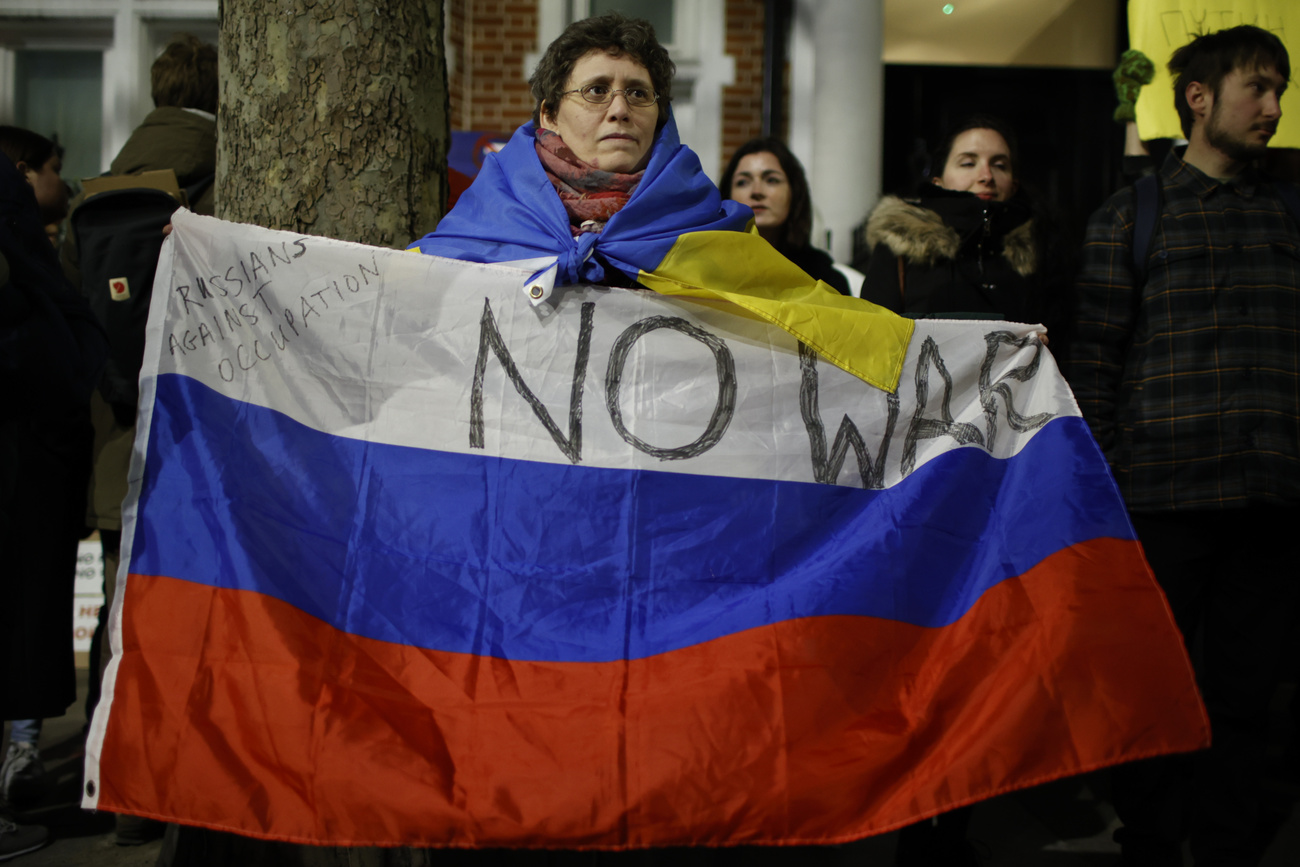
More
Switzerland backs full EU sanctions against Russia

In compliance with the JTI standards
More: SWI swissinfo.ch certified by the Journalism Trust Initiative










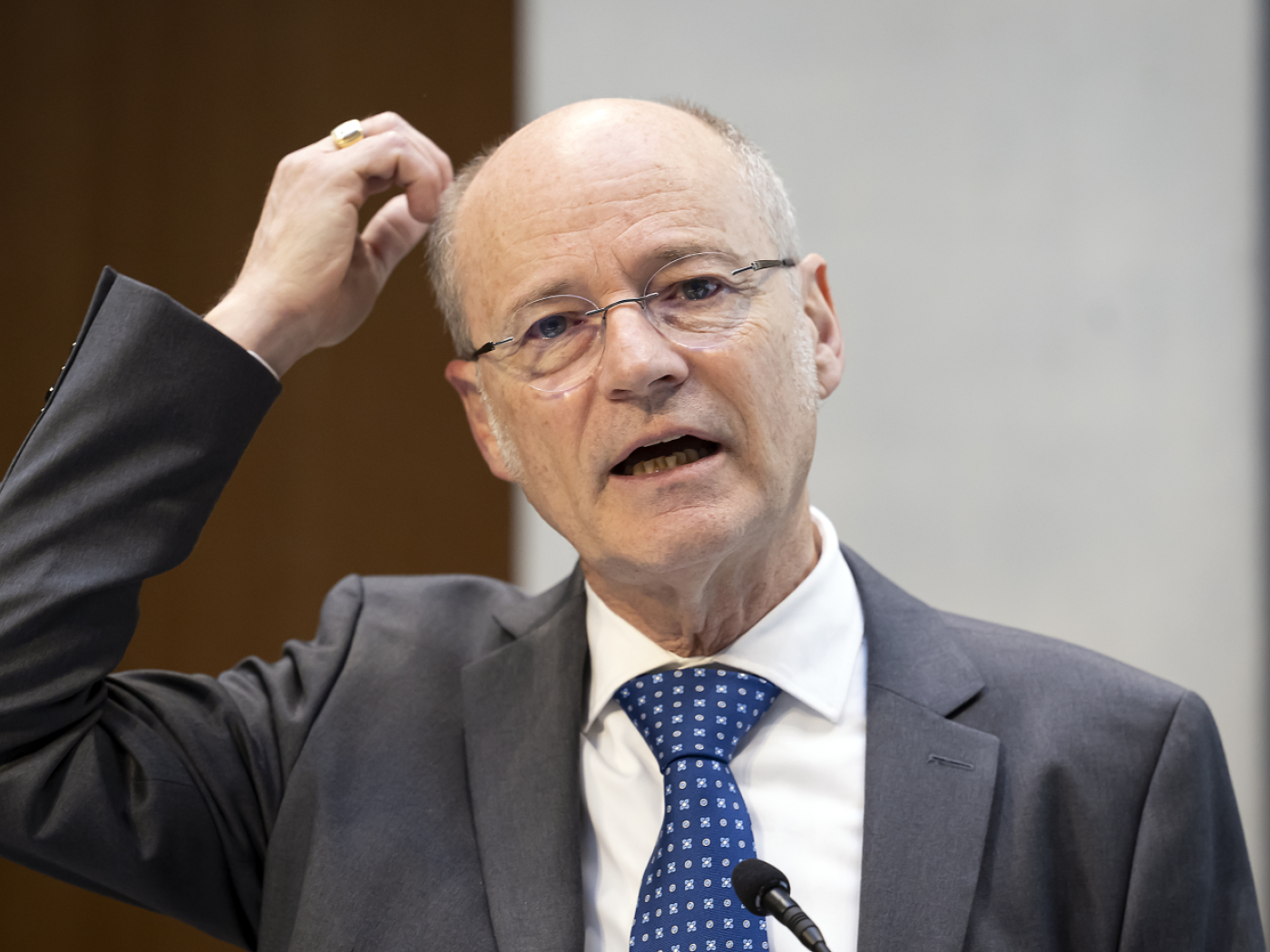
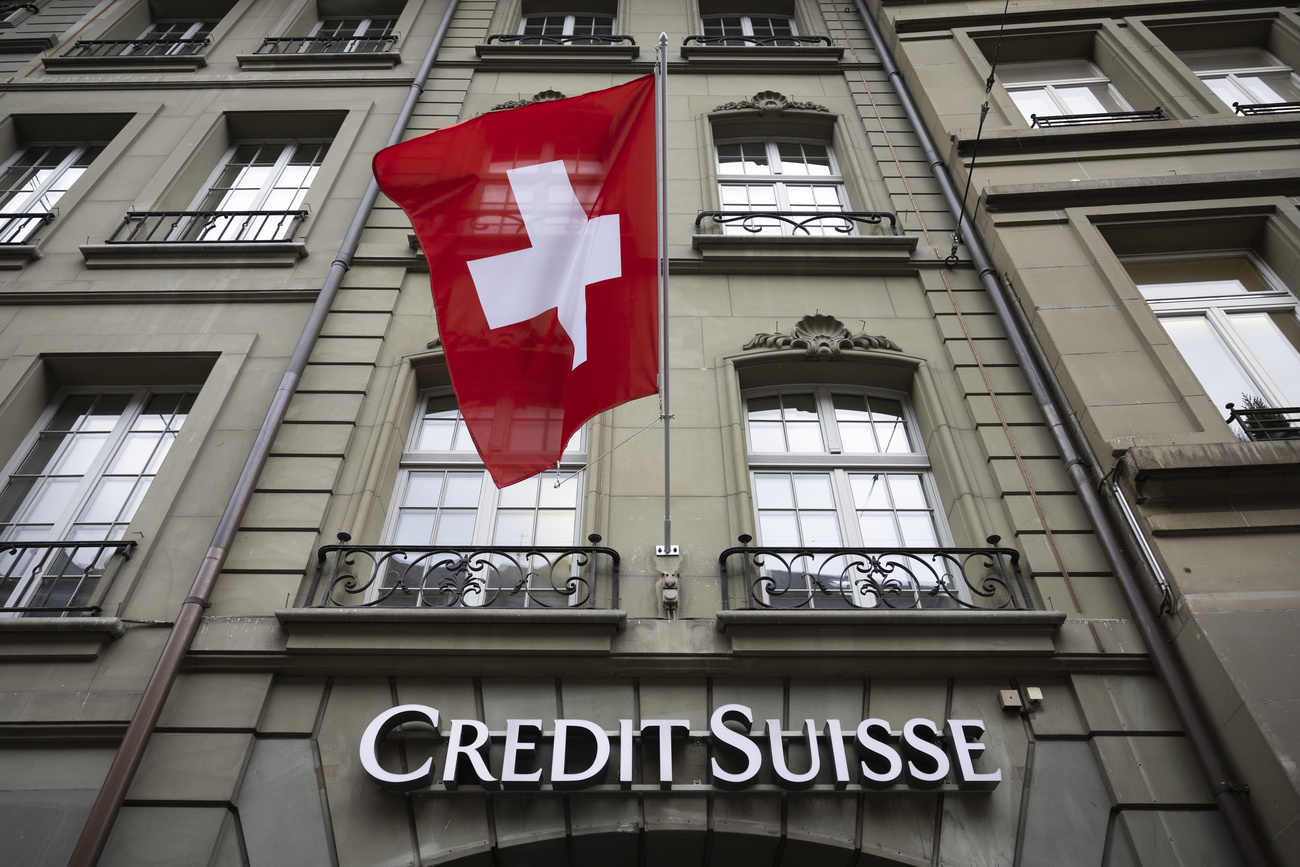
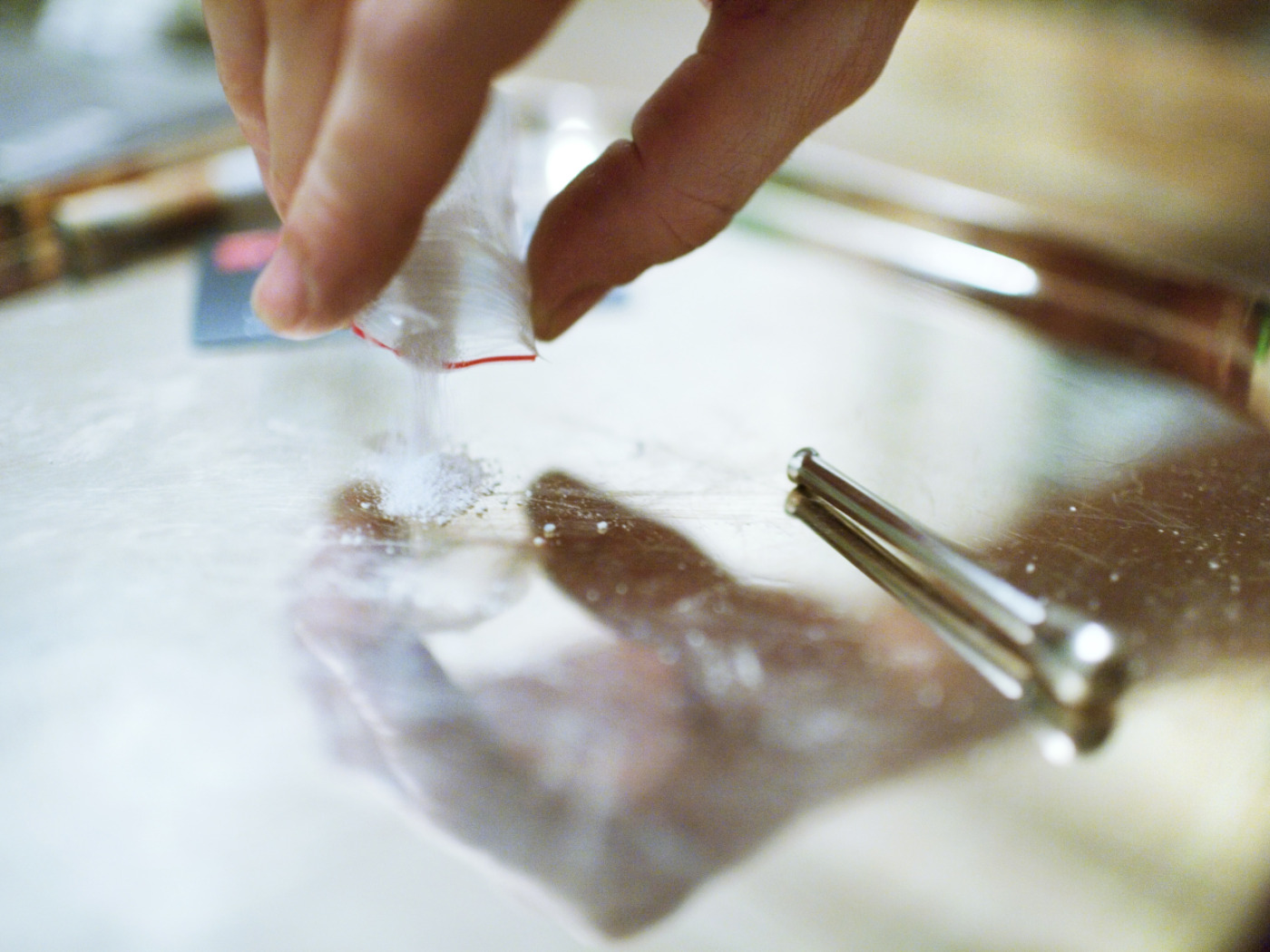





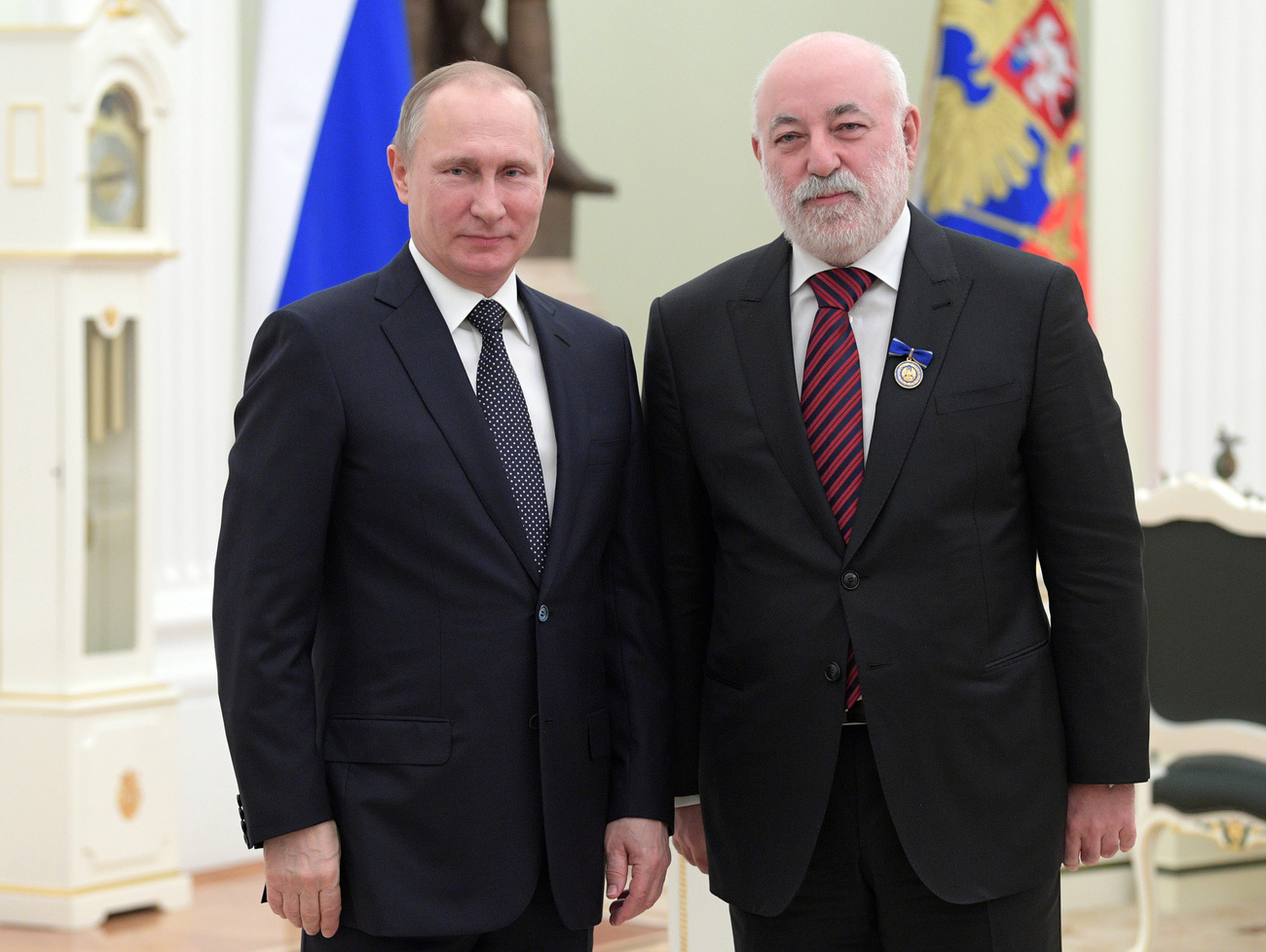
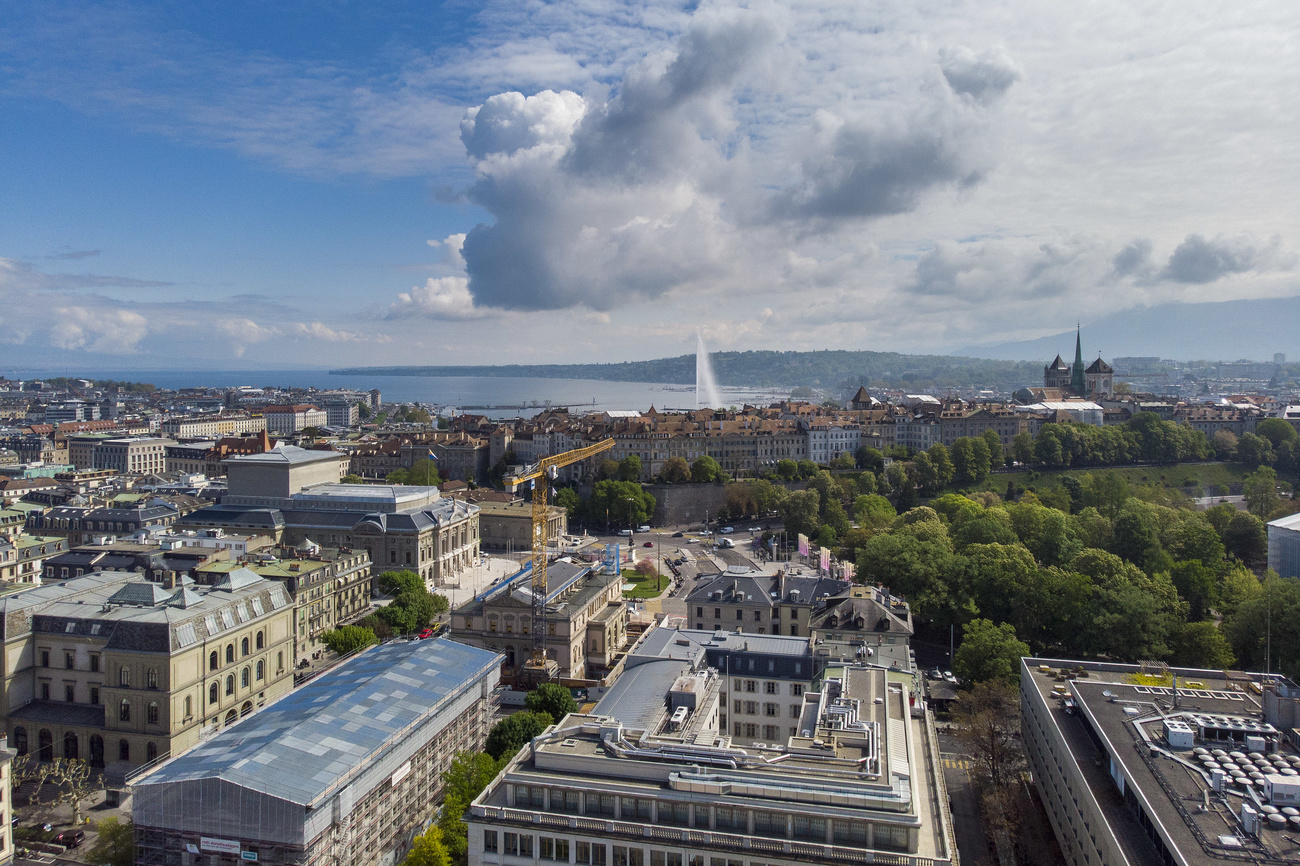

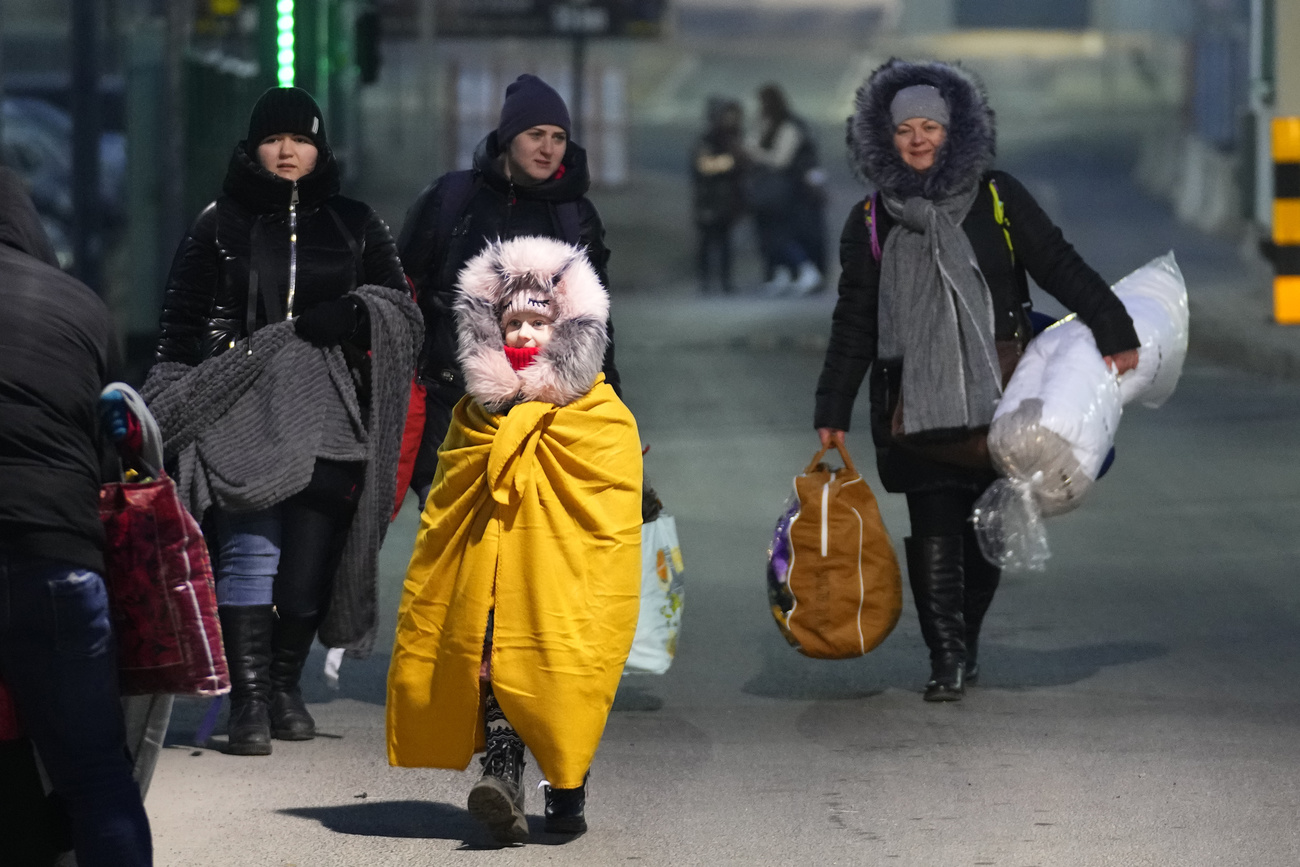
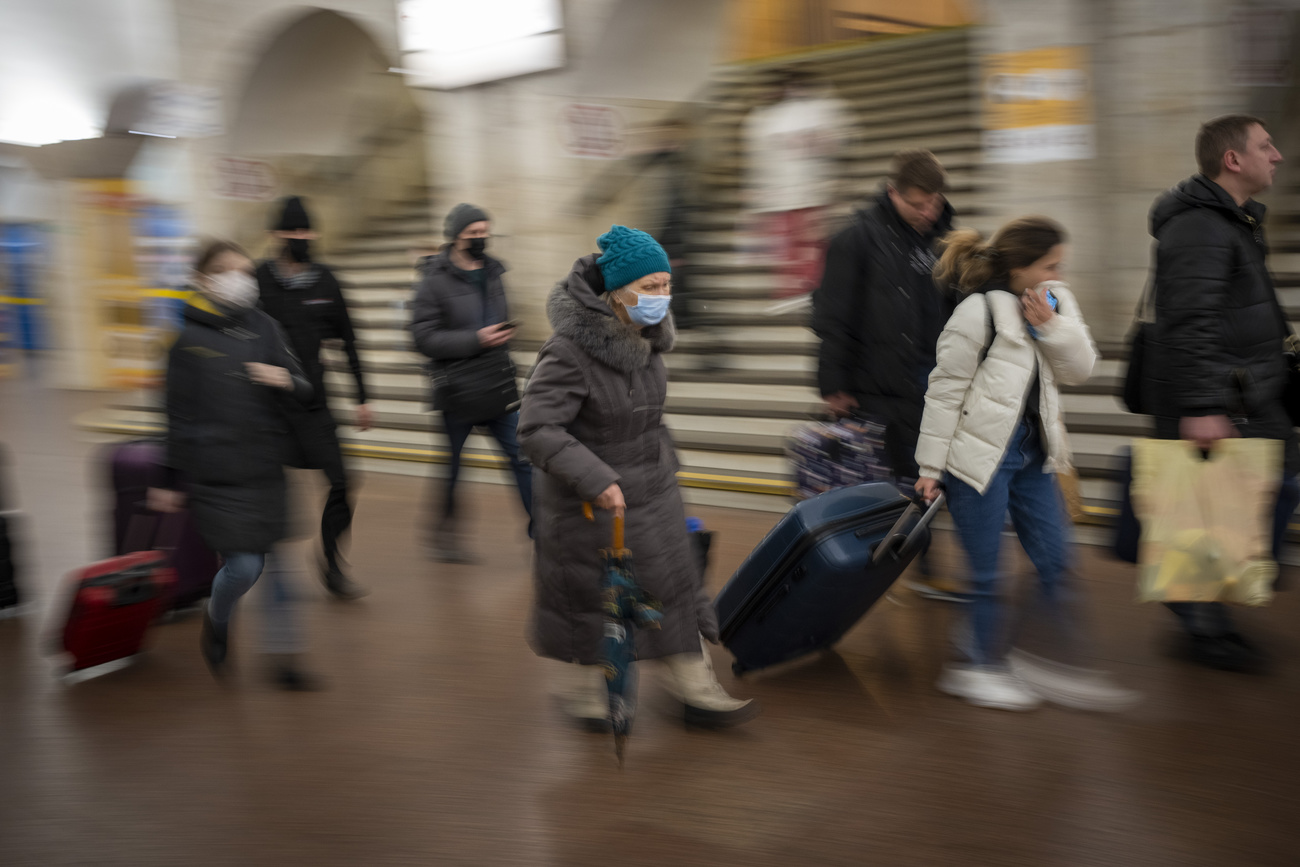
You can find an overview of ongoing debates with our journalists here . Please join us!
If you want to start a conversation about a topic raised in this article or want to report factual errors, email us at english@swissinfo.ch.